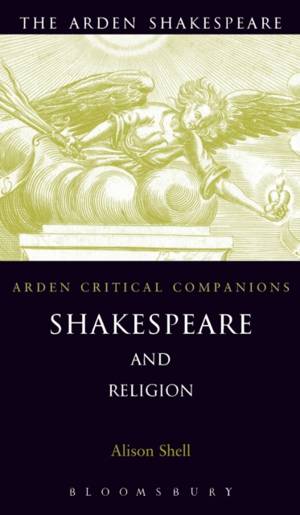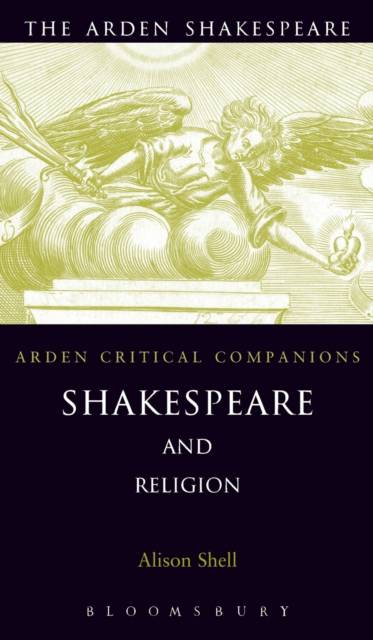
Bedankt voor het vertrouwen het afgelopen jaar! Om jou te bedanken bieden we GRATIS verzending (in België) aan op alles gedurende de hele maand januari.
- Afhalen na 1 uur in een winkel met voorraad
- In januari gratis thuislevering in België
- Ruim aanbod met 7 miljoen producten
Bedankt voor het vertrouwen het afgelopen jaar! Om jou te bedanken bieden we GRATIS verzending (in België) aan op alles gedurende de hele maand januari.
- Afhalen na 1 uur in een winkel met voorraad
- In januari gratis thuislevering in België
- Ruim aanbod met 7 miljoen producten
Zoeken
€ 271,45
+ 542 punten
Uitvoering
Omschrijving
This book sets Shakespeare in the religious context of his times, presenting a balanced, up-to-date account of current biographical and critical debates, and addressing the fascinating, under-studied topic of how Shakespeare's writing was perceived by literary contemporaries - both Catholic and Protestant - whose priorities were more obviously religious than his own. It advances new readings of several plays, especially Hamlet, King Lear and The Winter's Tale; these draw in many cases on new and under-exploited contemporary analogues, ranging from conversion narratives, books of devotion and polemical pamphlets to manuscript drama and emblems.
Shakespeare's writing has been seen both as profoundly religious, giving everyday human life a sacramental quality, and as profoundly secular, foreshadowing the kind of humanism that sees no necessity for God. This study attempts to reconcile these two points of view, describing a writer whose language is saturated in religious discourse and whose dramaturgy is highly attentive to religious precedent, but whose invariable practice is to subordinate religious matter to the particular aesthetic demands of the work in hand. For Shakespeare, as for few of his contemporaries, the Judaeo-Christian story is something less than a master narrative.
Shakespeare's writing has been seen both as profoundly religious, giving everyday human life a sacramental quality, and as profoundly secular, foreshadowing the kind of humanism that sees no necessity for God. This study attempts to reconcile these two points of view, describing a writer whose language is saturated in religious discourse and whose dramaturgy is highly attentive to religious precedent, but whose invariable practice is to subordinate religious matter to the particular aesthetic demands of the work in hand. For Shakespeare, as for few of his contemporaries, the Judaeo-Christian story is something less than a master narrative.
Specificaties
Betrokkenen
- Auteur(s):
- Uitgeverij:
Inhoud
- Aantal bladzijden:
- 320
- Taal:
- Engels
- Reeks:
Eigenschappen
- Productcode (EAN):
- 9781904271703
- Verschijningsdatum:
- 1/01/2011
- Uitvoering:
- Hardcover
- Formaat:
- Genaaid
- Afmetingen:
- 132 mm x 201 mm
- Gewicht:
- 430 g

Alleen bij Standaard Boekhandel
+ 542 punten op je klantenkaart van Standaard Boekhandel
Beoordelingen
We publiceren alleen reviews die voldoen aan de voorwaarden voor reviews. Bekijk onze voorwaarden voor reviews.









